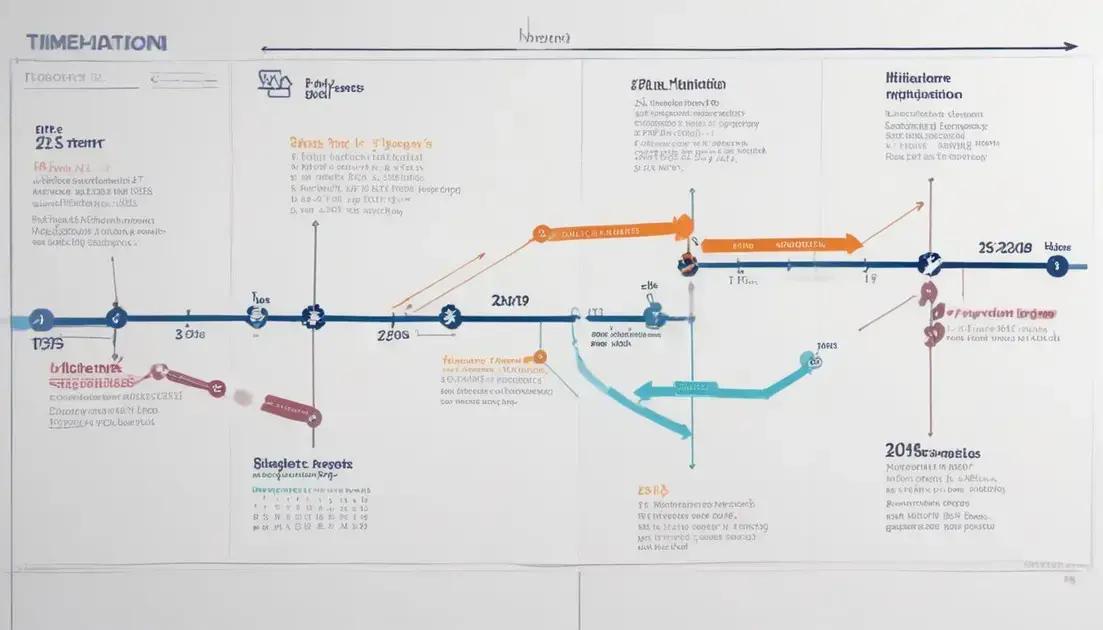DWP PIP Changes: What Every Claimant Needs to Know in 2024

The Department for Work and Pensions (DWP) is set to introduce significant DWP PIP changes that could reshape disability benefits for thousands of claimants. Are you prepared for these critical updates that might redefine your financial support?
Understanding the latest DWP PIP modifications
The Department for Work and Pensions (DWP) has recently introduced significant modifications to the Personal Independence Payment (PIP) system, which could substantially impact disability benefits for thousands of claimants across the United Kingdom.
Key Legislative Changes
These modifications represent a comprehensive review of the existing PIP framework, focusing on assessment criteria and eligibility requirements. The changes aim to create a more responsive and fair support system for individuals with disabilities.
Assessment Process Refinements
The updated guidelines introduce more nuanced evaluation methods, considering the complex and varied nature of disabilities. Claimants will now undergo a more holistic assessment that examines functional capabilities across multiple domains of daily living.
Impact on Current and Future Claimants
The modifications could potentially alter how disability support is determined, potentially affecting both existing and new PIP applicants. Understanding these changes is crucial for individuals navigating the benefits landscape.
Notable adjustments include refined scoring mechanisms, enhanced medical evidence requirements, and more comprehensive documentation standards. These updates reflect a commitment to providing more targeted and personalized support.
Key eligibility criteria updates
Recent updates to the Personal Independence Payment (PIP) eligibility criteria have introduced significant changes that claimants must carefully understand to ensure continued support.
Core Functional Assessment Modifications
The DWP has refined the assessment points system, focusing more intensely on an individual’s ability to complete daily living activities and mobility tasks. These modifications mean that claimants will now be evaluated using a more comprehensive and nuanced approach.
Specific Scoring Adjustments
Critical changes include recalibrated point allocations for various disability categories. For instance, mental health conditions and fluctuating disabilities now receive more detailed consideration, with greater emphasis on the consistency and frequency of functional limitations.
Documentation and Evidence Requirements
Claimants must now provide more extensive medical documentation, including detailed healthcare professional reports, personal impact statements, and comprehensive evidence demonstrating how their condition affects daily functioning. The new guidelines demand more robust proof of disability-related challenges.
Healthcare professionals will use more standardized assessment tools, ensuring a more objective evaluation process. This approach aims to create a fairer system that accurately reflects the complex nature of disabilities and individual support needs.
How new assessment methods will work
The Department for Work and Pensions (DWP) has introduced a comprehensive overhaul of the Personal Independence Payment (PIP) assessment methodology, designed to provide a more holistic and precise evaluation of claimants’ functional capabilities.
Comprehensive Functional Evaluation
The new assessment approach emphasizes functional ability over medical diagnosis, utilizing a more nuanced scoring system that considers the real-world impact of disabilities. Assessors will now conduct more in-depth interviews and on-site evaluations to understand how conditions affect daily living activities.
Technology-Enhanced Assessment Process
Cutting-edge digital tools will be integrated into the assessment framework, allowing for more accurate and consistent evaluations. Digital mapping of functional limitations will provide a more comprehensive view of a claimant’s specific challenges, moving beyond traditional checklist-based assessments.
Personalized Assessment Approach
Healthcare professionals will now receive specialized training to conduct more empathetic and detailed assessments. The new methodology includes a more comprehensive approach to understanding fluctuating conditions, recognizing that disability impacts can vary significantly over time.
The refined assessment method incorporates multiple evidence sources, including medical records, personal statements, and direct observations. This multi-dimensional approach aims to create a more fair and accurate representation of an individual’s support needs.
Potential impact on current claimants

The recent DWP PIP changes introduce significant implications for current benefit recipients, potentially reshaping their financial support and daily living assistance.
Benefit Level Recalculations
Current claimants may experience substantial modifications to their existing support levels. The new assessment criteria could result in benefit increases or decreases, depending on how an individual’s functional capabilities are now evaluated under the revised guidelines.
Reassessment Risks and Opportunities
Many existing claimants will face mandatory reassessments, which might trigger significant changes in their current support package. This process could mean some individuals receive more comprehensive support, while others might see reductions in their current benefits.
Mental Health and Fluctuating Conditions
Individuals with mental health conditions or disabilities that vary in intensity will likely experience the most notable impact. The new assessment methods provide a more nuanced approach to understanding complex and non-linear disability experiences, potentially offering more accurate support determinations.
Claimants are strongly advised to gather comprehensive medical evidence, prepare detailed personal impact statements, and seek professional guidance to navigate these complex changes effectively. The transition period may create uncertainty, but it also presents an opportunity for more personalized disability support.
Navigating the application process post-changes
The updated Personal Independence Payment (PIP) application process requires careful navigation and strategic preparation to ensure successful claims under the new guidelines.
Preliminary Documentation Preparation
Claimants must now gather more comprehensive medical evidence than ever before. This includes detailed medical records, specialist reports, and personal impact statements that clearly demonstrate how their condition affects daily living and mobility.
Enhanced Evidence Requirements
The DWP now expects multi-dimensional documentation that goes beyond traditional medical diagnoses. Applicants should provide concrete examples of how their condition impacts their ability to complete everyday tasks, using specific and measurable descriptions.
Strategic Application Submission
Success requires a methodical approach to completing the PIP application. Key strategies include:
- Documenting functional limitations with precise examples
- Including supporting evidence from healthcare professionals
- Describing the consistency and frequency of disability impacts
Applicants are advised to seek professional guidance, potentially consulting disability support organizations or legal advisors specializing in benefits claims. Thorough preparation can significantly improve the likelihood of a successful application under the new assessment framework.
Financial implications of the PIP reforms
The recent Personal Independence Payment (PIP) reforms introduce significant financial considerations that could substantially impact claimants’ economic stability and support systems.
Potential Benefit Level Changes
Claimants may experience substantial variations in monthly financial support. The new assessment criteria could result in increased or decreased benefit amounts, depending on how an individual’s functional capabilities are evaluated under the revised guidelines.
Economic Impact on Disability Support
The reforms potentially create a more stratified approach to financial assistance, with more precise allocations based on specific functional limitations. This means some claimants might receive more targeted support, while others could see reductions in their current benefit levels.
Budgetary Planning Considerations
Individuals relying on PIP should:
- Prepare for potential income fluctuations
- Build emergency financial reserves
- Seek additional support resources
- Understand the full scope of potential changes
The financial landscape of disability support is evolving, requiring claimants to be proactive in understanding how these reforms might impact their personal economic situation. Professional financial counseling could provide valuable guidance during this transition.
Support resources for those affected
Navigating the complex landscape of PIP changes requires accessing comprehensive support resources designed to assist claimants through the transition.
Professional Guidance Networks
Claimants can leverage specialized disability support organizations that offer free consultations and detailed guidance. Key resources include Citizens Advice, Disability Rights UK, and local disability support centers providing personalized assistance.
Legal and Advocacy Support
Several organizations offer free legal advice and representation to help individuals understand their rights and challenge potential benefit assessment decisions. These services can be crucial in ensuring fair treatment during the PIP reform process.
Online and Offline Support Channels
Available support resources include:
- Dedicated helplines for PIP inquiries
- Online forums and community support groups
- Free workshops explaining new assessment procedures
- Digital guides and informational resources
- One-on-one consultation services
Claimants are encouraged to proactively seek information, documenting their experiences and maintaining open communication with support networks throughout the PIP changes implementation.
Timeline of implementation and transition

The Department for Work and Pensions (DWP) has outlined a structured approach to implementing Personal Independence Payment (PIP) reforms, with carefully planned stages of transition.
Phased Rollout Strategy
The implementation will occur through a carefully structured multi-phase approach, designed to minimize disruption for current claimants. Each phase will target specific groups and geographical regions to ensure smooth transition and comprehensive assessment.
Key Transition Milestones
Critical dates in the implementation timeline include:
- Initial announcement and preliminary guidelines: Q1 2024
- First wave of reassessments: Mid-Q2 2024
- Comprehensive policy implementation: Late Q3 2024
- Full system integration: Early Q1 2025
Claimant Communication Protocol
The DWP will use multiple communication channels to inform affected individuals, including:
- Official written notifications
- Online information portals
- Dedicated helpline services
- Regional information sessions
Claimants are advised to stay informed and prepare documentation in advance, as the transition may require proactive engagement with the new assessment framework.
Navigating the Future of PIP: What Claimants Need to Know
The Department for Work and Pensions (DWP) PIP reforms represent a significant shift in disability support, designed to create a more responsive and fair assessment system. These changes aim to provide more personalized and accurate support for individuals with disabilities.
Key takeaways for claimants include the importance of staying informed, gathering comprehensive medical evidence, and seeking professional guidance throughout the transition process. The new framework may seem complex, but it ultimately seeks to improve the support system.
Individuals affected by these changes should:
- Remain proactive in understanding new guidelines
- Prepare detailed documentation
- Utilize available support resources
- Seek professional advice if needed
While the PIP reforms may create uncertainty, they also present an opportunity for more tailored disability support. By staying informed and prepared, claimants can navigate these changes effectively and ensure they receive the most appropriate assistance.





